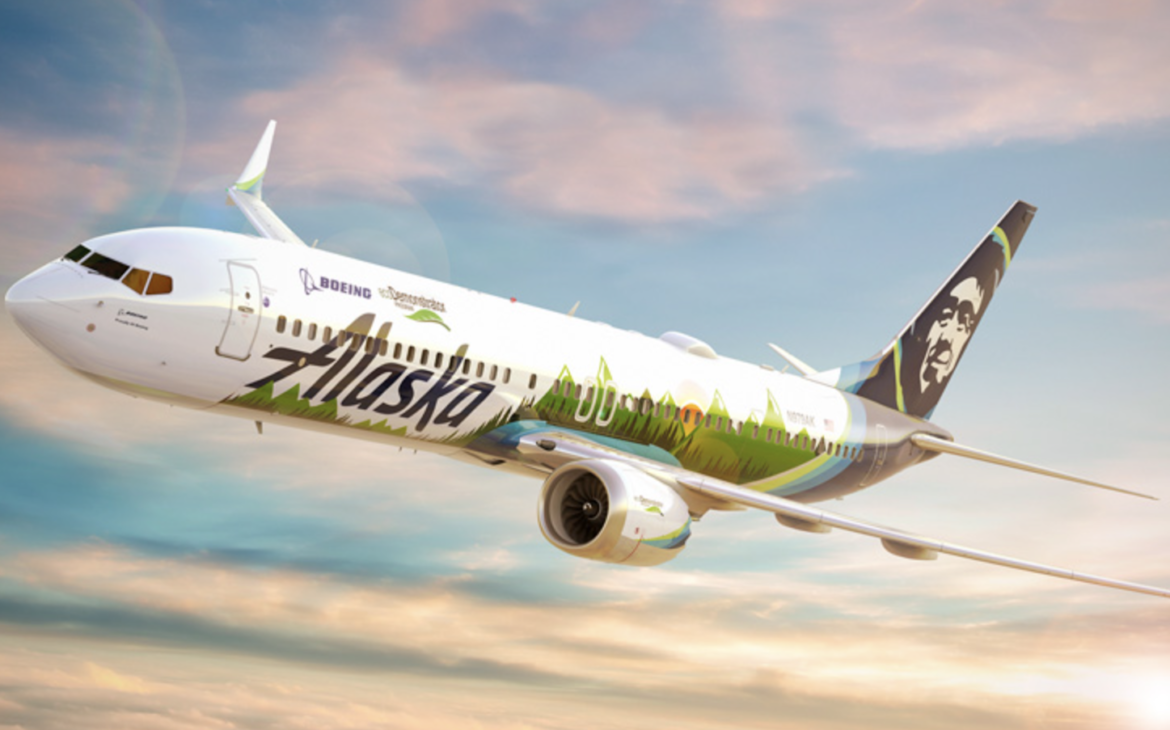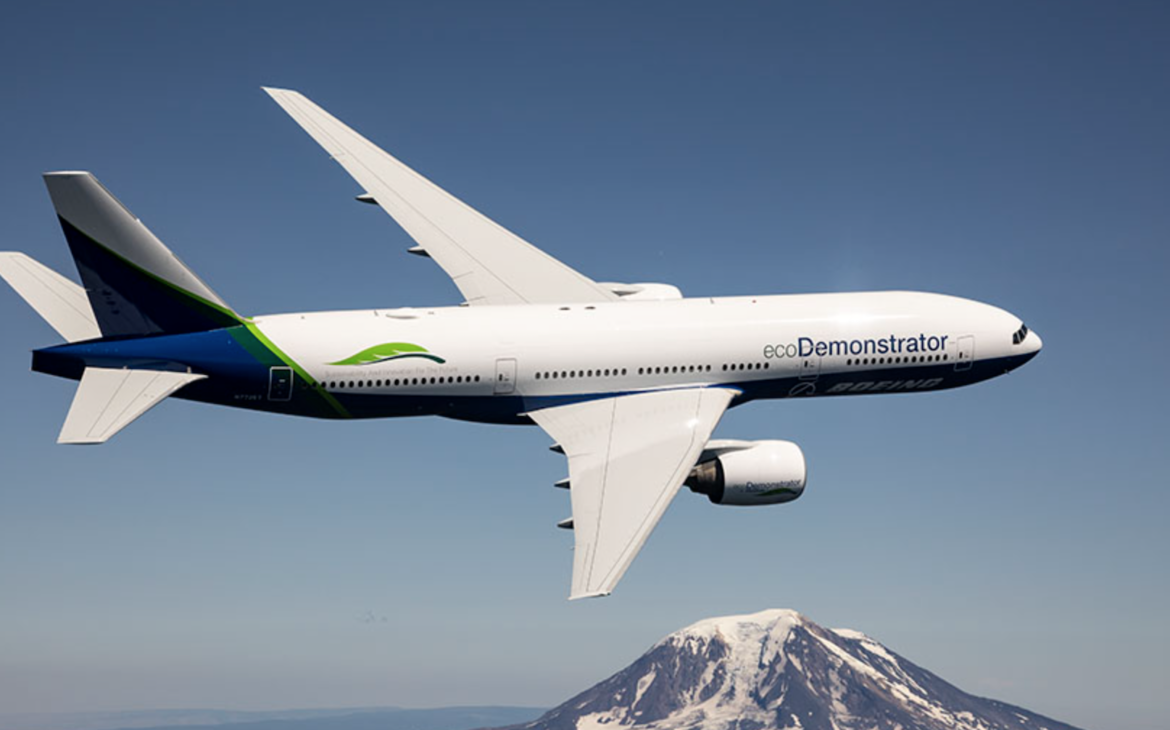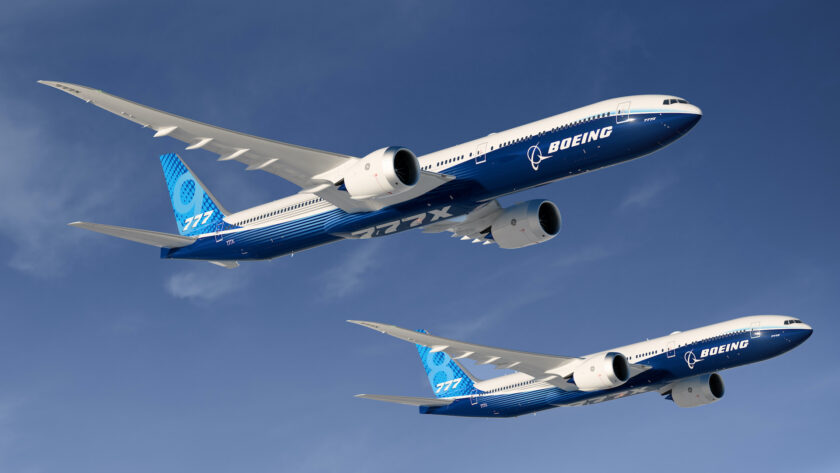Commercial airlines are used to being singled out for their carbon footprint, and despite exciting prospects such as United Airlines committing to buy 100 all-electric commuter planes, the pressure is still on plane makers to boost their environmental credentials.
While the Covid pandemic raged through the US last year and many flights were suspended worldwide, Boeing created a sustainability organisation to focus on advancing the company’s ESG efforts across the entire business. Ten months later, Boeing has released its first Sustainability Report in which it commits to delivering commercial aeroplanes capable of flying on 100-per-cent sustainable fuels by 2030 – currently, engines built by their partners are certified to run on 50-per-cent sustainable fuels.
There is a precedent for such a reduction: In 2018 a Boeing 777 Freighter was the world’s first commercial airliner to fly on 100-per-cent sustainable fuel, and research continues to make the fuel mainstream.
Meanwhile, the company has identified four key pillars supporting its sustainability goals: people, products and services, operations and communities. This means it is taking a holistic approach covering not just its aircraft design and operations, but the entire business.
By 2030, it aims to achieve net-zero carbon emissions at work sites, while reducing energy consumption by 12 per cent, water use by 23 per cent, solid waste by 44 per cent, and hazardous waste by 34 per cent.
“We know there’s still work to do and are committed to communicating our progress and holding ourselves accountable to ensure the aerospace industry is safe and sustainable for generations to come,” says Boeing’s chief sustainability officer, Chris Raymond.
On the product front, Boeing has already partnered with Etihad Airways on a 2020 ecoDemonstrator program, which is testing sustainable technologies on one of the airline’s 787-10 Dreamliner aircraft.
This year, Boeing is also partnering with Alaska Airlines in which one of the airline’s 737-9 aeroplanes is being used to test about 20 projects that can make aviation safer and more sustainable.

Specifically, the program with Alaska will test a halon-free fire-extinguishing agent that significantly reduces effects on the ozone layer, evaluate means of reducing engine noise, and assess cabin sidewalls made from recycled material, among other initiatives.
“This work with Boeing to accelerate innovation on the ecoDemonstrator program enables us to contribute to a more sustainable future for our global community,” said Diana Birkett Rakow, Alaska Airlines’ VP of public affairs and sustainability.
These ecoDemonstrator projects mark an extension of an initiative dating back to 2012 in which the company wants to “take promising technologies out of the lab and test them in the air”. Eight aircraft have been used to date, serving as flying testbeds.
According to Boeing, the projects include technologies that reduce fuel use, emissions and noise and incorporate more sustainable materials.

The company is also already undertaking test flights of an all-electric aircraft, a self-flying air taxi dubbed Cora, in a joint venture with Kitty Hawk Corporation called Wisk.
Of course, all this is planning for the future, and cannot avoid the fact that each commercial jet delivered by the company last year will – on average – contribute emissions equivalent to 1 million tonnes of carbon dioxide annually through their 20-plus-year lifespan, a fact the company disclosed along with its Sustainability Report.
CEO Dave Calhoun writes in a foreword to the report that the company aims to “significantly reduce our environmental impact during every stage of a product’s life cycle”.
However, Dan Rutherford, aviation director at the International Council on Clean Transportation, an environmental research group based in Washington, appears unimpressed for now.
“The data confirms that Boeing’s aircraft come with a high environmental price tag,” he told Reuters.
Environmental groups believe that flights must be curbed to have a meaningful impact on climate change.



